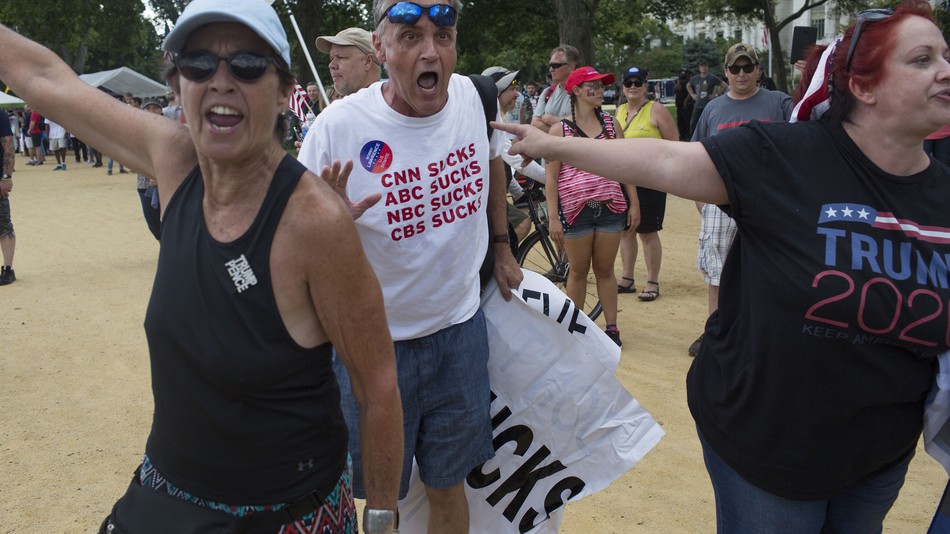By: Rachel Kraus – mashable.com – January 2, 2018
A new study confirms your worst fears about fake news in the U.S. — it’s widespread, skews pro-Trump, and is mostly consumed by your conservative uncle.
Oh, and fact checking hasn’t worked at all.
A group of academic researchers have published what they are calling the first scientific, data-based study of Americans’ exposure to fake news in the month surrounding the 2016 U.S. election.
Combining survey responses and browsing histories of a representative sample of 2,525 Americans, the researchers found that one in four news consumers visited a fake news between Oct. 7 and Nov. 14, 2017.
The report also studied the content itself. Fake news skewed almost entirely pro-Trump, and was consumed most voraciously by the most politically conservative Americans, according to the researchers.
The researchers noted that fake news did have an impact, with a sizable portion of conservative Americans over 60 consuming around one fake news story per day during the time period studied.
“These results contribute to the ongoing debate about the problem of ‘filter bubbles’ by showing that the ‘echo chamber’ is deep (33.16 articles from fake news websites on average) but narrow (the group consuming so much fake news represents only 10% of the public),” wrote the study’s authors.
Even worse, the survey showed that attempts to counter fake news aren’t working. Fact-checking websites like Snopes or PolitiFact are failing to reach fake news readers. The study’s authors found that literally none of people who read a fake news article read the corresponding de-bunk from a fact checking site.
Entitled “Selective Exposure to Misinformation: Evidence from the consumption of fake news during the 2016 U.S. presidential campaign,” political scientists Brendan Nyhan of Dartmouth College, Andrew Guess of Princeton University, and Jason Reifler of the University of Exeter published the study on Dec. 20, 2016.
They define “fake news” as “factually dubious for-profit articles” and used a previously published study that classified fake news websites and articles to inform their own categorization. Meanwhile, President Donald Trump regularly uses the term “fake news” to describe unfavorable coverage of his administration from legitimate news outlets.
![]() Source: Study shows Trump-supporters over 60 read the most fake news
Source: Study shows Trump-supporters over 60 read the most fake news
 Listen Online
Listen Online Watch Online
Watch Online Find a Station in Your Area
Find a Station in Your Area









 Listen Now
Listen Now Watch Online
Watch Online
